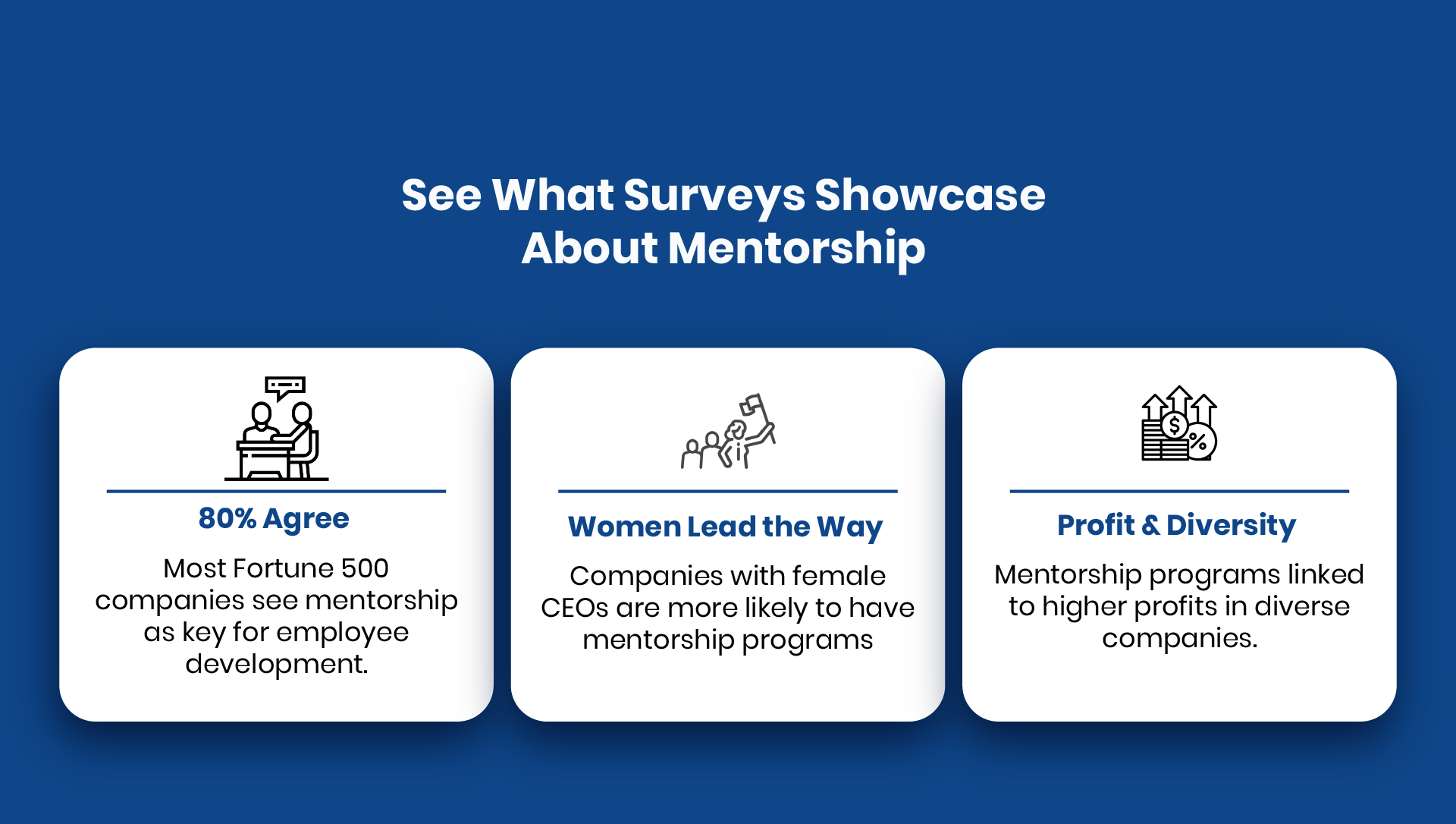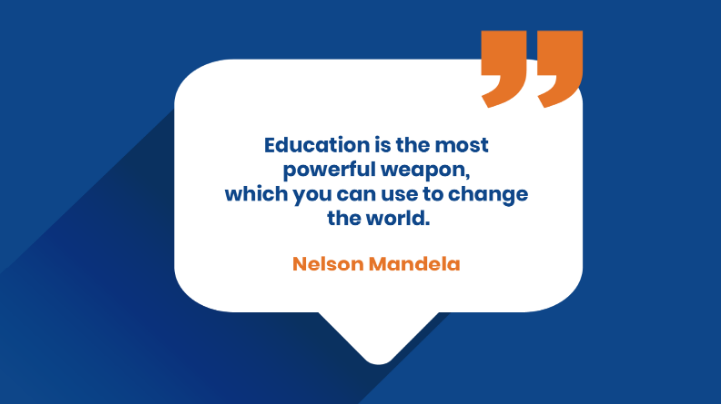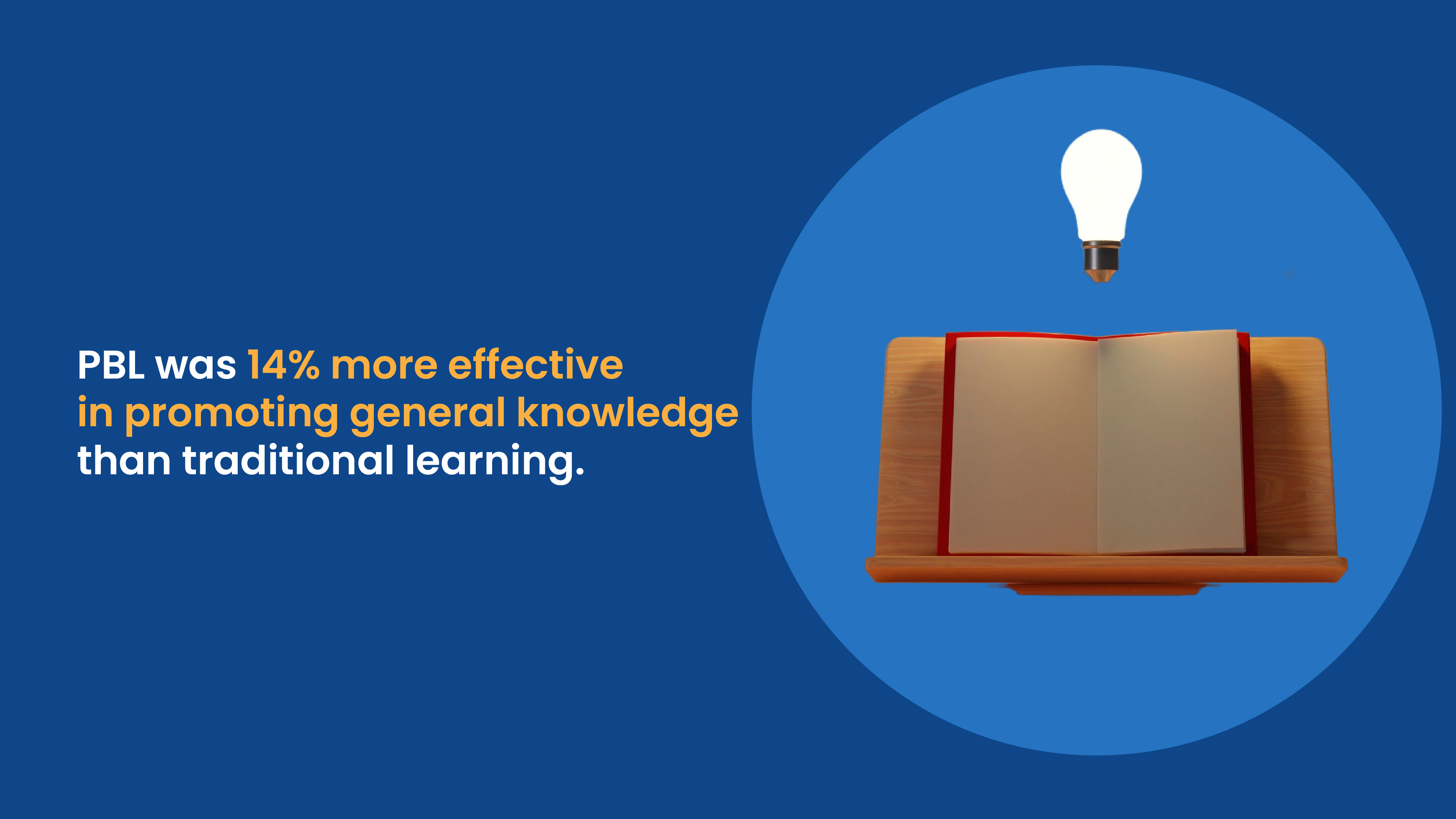How mentorship programs in the workplace ignites practical skills for the future of work
The future of work is here, and it is demanding a transformation in the global workforce. A staggering statistic from the World Economic Forum estimates that by 2030, 1 billion people will need to be reskilled to meet the demands of this evolving landscape. This isn’t a distant threat – it’s a revolution happening right now and presents both challenges and exciting opportunities. Amidst this brewing storm, a beacon of hope shines: mentorship programs in the workplace.
In 2023, mentorship ranked #1 in LinkedIn’s Learning Report as the most sought-after learning and development program area. This rising demand is not just a trend; it’s a reaction to the urgent need for practical skills in a rapidly changing world.
Just like education is evolving rapidly, so too is the role of mentorship. So, let’s dive into this new era of education, exploring how mentorship empowers individuals to acquire the practical skills they need to thrive in the face of change.
We’ll unravel the research, explore innovative approaches, and answer the burning question: can mentorship bridge the skills gap and become the key to unlocking our collective potential?
We’ll unravel the research, explore innovative approaches, and answer the burning question: can mentorship bridge the employee skill development gap and become the key to unlocking our collective potential in professional skills?
The Changing Landscape of Skills
As we move deeper into the digital age, workplace skill requirements are changing significantly. Traditional academic qualifications are being matched or even surpassed by the need for practical expertise
The Power of Experiential Learning
Traditional education focuses heavily on theoretical concepts. While this knowledge base forms a foundation, it often lacks the practical application crucial for workplace success. Mentorship bridges this gap by providing hands-on experience through real-world projects and tasks. Mentors, seasoned professionals with established careers, guide mentees through practical scenarios, allowing them to:
- Learning by Doing: Hands-on experience with real-world projects > applying knowledge, problem-solving for unforeseen challenges, building critical thinking/decision-making.
- Practical Skills Development: Tailored to chosen field > technical skills (software, data analysis), soft skills (communication, teamwork, adaptability).
- Deeper Understanding & Confidence: Increasing employee engagement fosters stronger understanding & belief in abilities essential for the initiative, tackling challenges, and thriving in the future workplace.
It not only bridges the gap between academia and industry but also equips learners with essential life skills. By adapting to these changes, you can better prepare leaders for the evolving demands of the future workplace.
Impact of Mentorship
In the dynamic world of skill development, mentorship has emerged as a key component in career development. It acts as a platform where seasoned professionals can share their expertise, offer guidance to their mentees, and cultivate an atmosphere of continuing professional development. This one-to-one relationship enables a bespoke learning journey tailored to the mentee’s individual needs, a level of personalization often absent in conventional employee development plans.
It brings theory to life by providing a first-hand experience of real-life scenarios, enriching the learning process with deeper, practical understanding of problem-solving skills. This is where mentorship truly shines – it extends learning beyond textbooks, making developing problem-solving skills more applicable and relevant. It’s not surprising then, that mentorship initiatives driven by industry leaders are being recognized as indispensable assets in the contemporary educational ecosystem.

Why Mentorship Matters for Millennials and Gen Z
The workforce landscape is undergoing a seismic shift, with Millennials and Gen Z poised to dominate the scene by 2025. It presents a unique opportunity for organizations to understand the aspirations and needs of these generations, particularly when it comes to skill development and career advancement.
Statistics paint a clear picture:
- Mentorship Gap: 83% of Gen Z workers consider a workplace mentor crucial for their career, yet only half currently have one.
- Lifelong Learners: Learning is paramount for Gen Z, with 76% viewing it as essential for career progress.
Beyond Statistics: The Business Case for Mentorship

The benefits of mentorship extend far beyond individual satisfaction. Studies show that Millennials and Gen Z with mentors are 21-23% more likely to be happy in their roles. It translates to increased engagement, productivity, and reduced turnover – all crucial factors for organizational success.
Mentorship is not just a feel-good initiative; it’s a strategic investment in the future of your organization. By embracing mentorship programs and catering to the needs of Millennials and Gen Z, you can build a thriving workforce equipped with the skills and motivation to navigate the ever-evolving world of work.
Mentorship goes beyond just filling a gap. Here’s how it benefits both Millennials and Gen Z:
- Skill Development: Mentors provide hands-on experience and guidance, helping mentees develop the practical skills they need to succeed in their chosen fields.
- Career Navigation: Mentors offer invaluable guidance on career paths, identifying future-proof skills, and exploring different opportunities within their industry.
- Building Confidence: A supportive mentorship environment fosters confidence, encouraging mentees to take initiative, overcome challenges, and embrace new opportunities.
- Networking and Growth: Mentors can connect mentees with valuable industry contacts and knowledge-sharing platforms, accelerating their professional growth and development.
Benefits of mentorship in developing practical skills
Mentorship offers a potent approach to honing practical skills, going beyond theory with real-world application. Here’s how it boosts individual and organizational growth:
- Mentees apply theories in real-world scenarios, enhancing comprehension and retention.
- Mentors provide direct guidance, accelerating skill development and minimizing learning curves.
- Communication, teamwork, and leadership qualities are nurtured through mentorship.
- Mentees gain exposure to networks, opening doors for career advancement.
- Monitoring programs with data showcases their contribution to skill development.
What are the challenges associated with mentorship and how do you overcome them?
Though the merits of mentorship are well-documented, the approach isn’t without its hurdles.
- Time Commitment: Balancing mentorship with other responsibilities can be difficult for mentors and mentees.
- Program Design: Creating efficient programs requires understanding needs, setting goals, identifying mentors, and measuring progress, which can be time-consuming and resource-intensive.
- Mentor Resources: Mentors may lack access to training materials, technology, or funding, hindering program effectiveness.
Solutions:
- Strategic Planning: Allocate dedicated time, plan workload, and set clear expectations for both parties.
- Technological Solutions: Utilize online platforms for communication, resource sharing, and progress tracking.
- Mentor Training: Equip mentors with effective communication, feedback, and coaching skills.
- Funding: Secure funding through partnerships, grants, or internal budget allocation.
As such, while these issues must be acknowledged, they should not deter us from realizing the immense potential of mentorship in skills development.
Mentorship: Building Leaders, But How Do You Measure Success?
Mentorship is a powerful tool for cultivating strong leadership skills in your workforce. But how do you assess its effectiveness and ensure it targets the right areas?
AntWalk’s ARCH Platform redefines corporate training development. Its industry-specific capability frameworks transcend generic skill-building, offering a data-driven assessment of employees’ leadership strengths and weaknesses. This actionable insight enables tailored mentorship programs to address identified gaps effectively. By connecting mentees with mentors who can cater to their specific needs, AntWalk empowers organizations to enhance the effectiveness and measurability of ARCH-driven mentorship development, cultivating a highly skilled and proficient leadership team.
Conclusion
In an era where the ground beneath our feet shimmers with constant change, mentorship emerges as a sturdy lighthouse, guiding and illuminating the path to practical skill acquisition. Through its unique blend of knowledge sharing, personalized guidance, and real-world application, it equips individuals with the tools needed to not only navigate but thrive in the demanding landscape of the future workplace.
As mentors and leaders, we have the remarkable opportunity to shape the very fabric of the future workforce, nurturing not just technical skills, but critical thinking, collaboration, and adaptability needed to truly excel.
Key Takeaways:
- Mentorship Matters: Mentorship goes beyond teaching by offering personalized guidance, real-world scenarios, and industry insights. It equips learners not only with specific skills but also with essential life skills.
- Benefits of Mentorship: Studies show higher retention, better skill development, and increased job satisfaction for both individuals and organizations with mentorship programs.
- Millennials & Gen Z Need Mentorship: These generations prioritize learning and career development yet lack access to mentors. Organizations can attract and retain them by offering mentorship programs.
- Designing Effective Programs: Set clear objectives, choose suitable mentors, utilize technology, and train mentors for successful implementation.
- Challenges & Solutions: Time, program design, and mentor resources can be hurdles. Overcome them through strategic planning, technology, training, and funding.
- Invest in Mentorship: Mentorship is not just a trend but a strategic investment in building a future-proof workforce with the skills and motivation to succeed.
- Comprehensive Capability Frameworks: They offer industry-specific capability frameworks, providing a clear picture of your workforce’s strengths and weaknesses – a crucial element for designing effective mentorship programs.
Mission:
We help Organizations measure and build Capabilities in line with their Business Priorities. Begin your journey to a more capable organization at www.antwalk.com.








